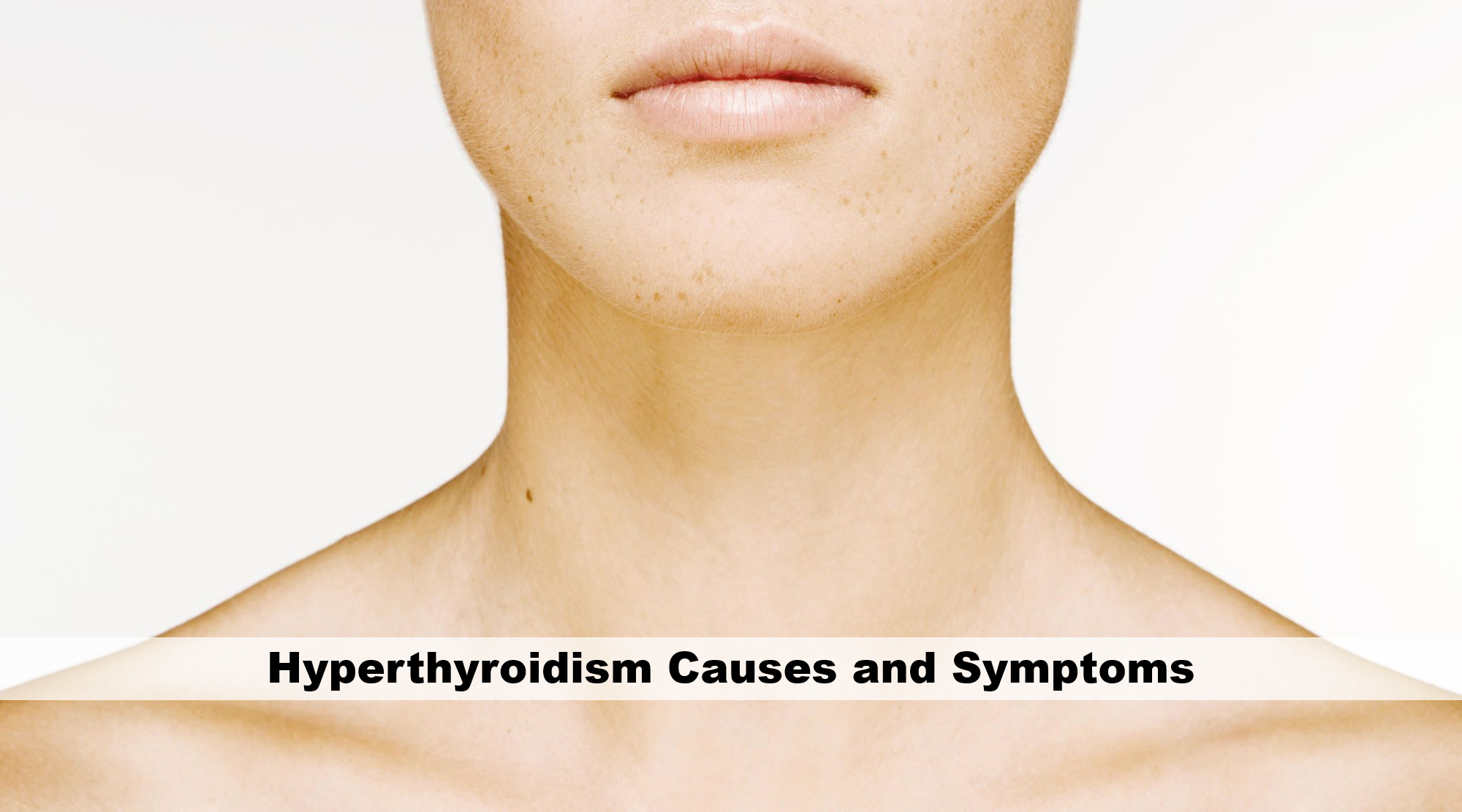Hyperthyroidism Causes and Symptoms

What is hyperthyroidism? What are the symptoms of hyperthyroidism? Hyperthyroidism is a disease caused by excessive thyroid hormone (T4 and T3) secretion from the thyroid gland. This disease is also called ‘thyrotoxicosis. Hyperthyroidism is a disease that has to be treated definitely; otherwise, it can be life-threatening. In the following text, you can find the main causes and symptoms of hyperthyroidism.
What is Hyperthyroidism?
The thyroid gland secretes the hormone T3 and T4, as well as calcitonin, and these are important hormones for metabolic rate, brain development – function, growth, menstrual cycle, heart rhythm, and sleep. However, some problems cause hyperthyroid cases and overproduction occurs. It may lead to problems such as weight gain or loss, a slowdown in growth, a decrease in brain development, discomfort, irregular menstruation, and depression. Occasionally, hypothyroidism or hormone secretion occurs, because drugs are effective in the short term, and thyroid patients need to make long-term lifestyle changes, including nutrition.
Hyperthyroidism Causes
Graves’ disease: Graves is an autoimmune disease that the immune system stimulates the thyroid gland to produce excess thyroid hormone. It is the most common cause of hyperthyroidism. In the first stage of treatment of Graves’ disease, hyperthyroidism is treated. T3 and T4 hormones in the blood are brought to normal levels with drugs.
Thyroiditis: Thyroiditis is an inflammation of the thyroid gland. It causes thyroid hormones to infiltrate into the blood, increase their general levels, and cause hyperthyroidism. After 1-2 months, it can turn into hypothyroidism. Thyroiditis can be caused by a viral or bacterial infection, an autoimmune condition, or pregnancy.
Hyperthyroidism Symptoms

Patients with some symptoms of hyperthyroidism may initially think that they are just tense or stressful. It may delay the diagnosis. People with hyperthyroidism may experience the following symptoms:
- Loss of weight
- Anger
- Increased stress or anxiety
- Heart palpitations
- Sweating and tremor
- Sleep problems
- Fatigue
- Hair loss
- Changes in the menstrual cycle
- Muscle weakness
- Enlarged thyroid gland (goiter)
Untreated hyperthyroidism can lead to serious heart-related complications. These are:
- Hypertension
- Arrhythmia (abnormal heartbeat)
- Cardiac dilatation and congestive heart failure
- Sudden cardiac arrest
Ten (10) rules for people with thyroid disease
- Avoid consuming sugar and white flour.
- Drink 2 liters of water every day.
- Avoid snacks.
- Exercise regularly. (if you do not want to gain weight, you should definitely give importance to the exercises and especially the walks before dinner.)
- Take vitamin B12, if necessary.
- Consume animal products and vegetables rich in nutrition
- Since vitamin B1 reduces thyroid hormones, avoid foods such as wheat bran, brewer’s yeast, rice, corn, and rye with high vitamin B1 content.
- Get your selenium levels tested.
- Be sure to eat cooked vegetables at meals, as if digestion is impaired, it is important to avoid constipation. Blueberry and flaxseed are also supplements that can be used to prevent constipation.
Foods to Eat For Thyroid Patients






